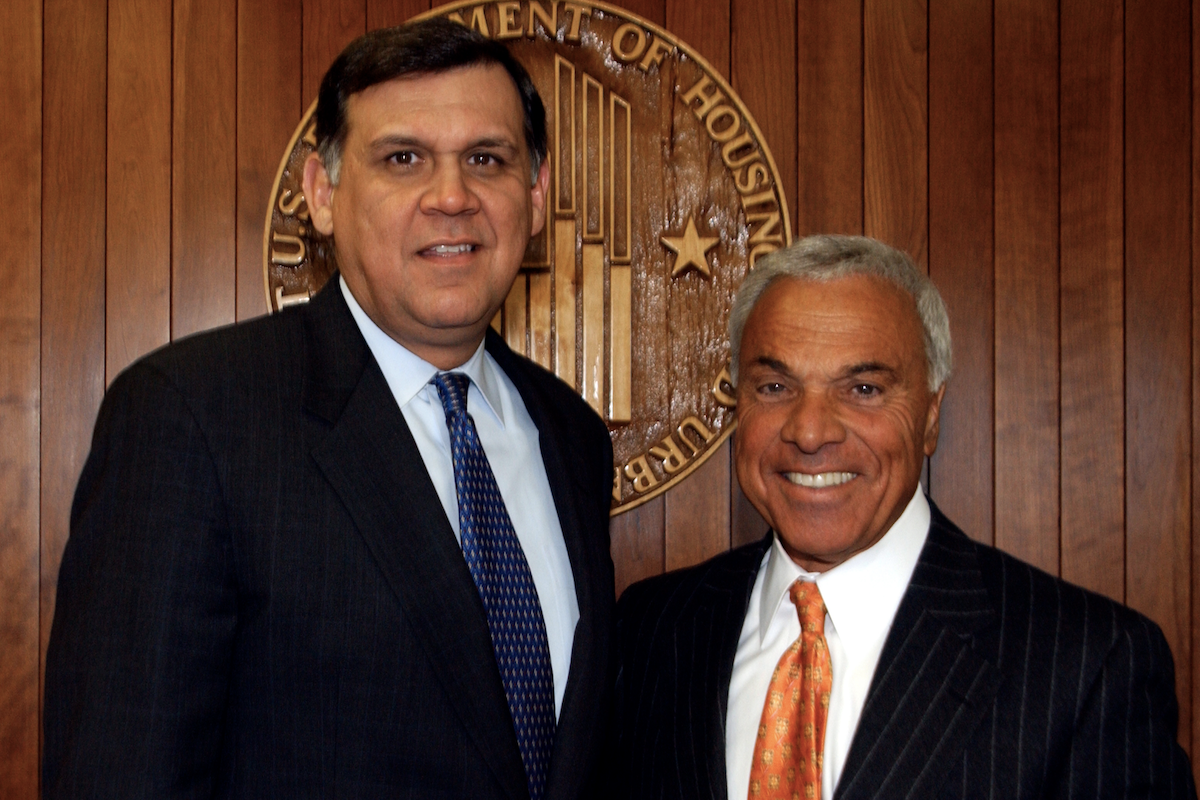Montecito’s Angelo Mozilo, Home Mortgage King, Dies
Countrywide Financial Co-Founder Connected to 2008 Financial Crisis Was 84 Years Old

Angelo Mozilo, last in these pages for a dispute with Ty Warner’s country club over the noise of the pickleball courts, died in Montecito on Sunday at the age of 84 of natural causes.
Mozilo was famous as the king of mortgages through his company Countrywide Financial, which bought endless minutes of television ad space, pushing no-cost refinancing without points, title or escrow fees, or closing costs. Countrywide formed in 1969 and became a mortgage behemoth, but the company collapsed in flames in 2008 when it was seized by federal regulators and sold to Bank of America. That was during the opening salvos of the subprime mortgage crisis, in which Mozilo and Countrywide came to symbolize the practice of giving home loans to individuals who had little ability to pay them back, loans that were made at variable rates with balloon payments that came due all too quickly.
It wasn’t always so. Mozilo started Countrywide in New York with David Loeb, and for decades the company was careful to assess their borrowers and their loans, choosing only good risks. By eliminating commissions to his salesforce, Mozilo lowered interest rates. In the 1990s, when he learned from the Federal Reserve that mortgage companies had too few loans to minority applicants, “Mozilo was appalled,” a profile in the New Yorker stated in 2009. He sent Black “mystery shoppers” to Countrywide branches and learned it was true; Mozilo then opened branches in inner-city areas, increasing loans to African Americans and Latinos. While he believed the gap between minority and White homeownership was “intolerably too wide,” he also observed that 80 percent White homeownership didn’t give the sales opportunity that 47 percent Latino homeownership did.
Mozilo was the son of a butcher in the Bronx, and had worked his way through Fordham University, a Jesuit college in the borough. He was a salesman with a permanent deep bronze tan, and Countrywide had become one of the largest lenders in minority communities by 2004. He’d grown Countrywide’s salesforce threefold between 2000 and 2003, to 34,000 employees. Accolades came from Barron’s, which named him among the 30 best CEOs in the world, and American Banker, which gave him a lifetime achievement award when Countrywide became the country’s largest mortgage lender in 2006.
With the deregulation of the banking industry in 1980, competition grew as the lines blurred between what a small-customer-deposit-oriented bank could offer, and what a larger-corporation-oriented investment bank could offer. For Countrywide, its mortgage business expanded to other banking services, title insurance, and securities.
By the early 2000s, new products like mortgage derivatives became popular and valuable, as new business lines started treating them like traditional stocks or mutual funds. Countrywide supplied many of those mortgages. While he publicly insisted credit quality was not an issue for his company, in private emails obtained by the Securities and Exchange Commission, Mozilo called the subprime loans “toxic” and “the most dangerous product in existence.” He returned his sales force to a commission basis, and they reaped millions pushing low-quality loans, a University of Texas case study found.
From the crash of Bear Stearns and Lehman Brothers to the teetering insurance giant AIG — American International Group, which found itself with too many of the worthless credit default swaps and mortgage-backed securities generated by investment bankers — to the hearings by the SEC, Mozilo and his company struggled along with much of Wall Street and the country into the Great Recession.
Countrywide was sold to Bank of America in 2008 for $4 billion. While a far cry from the company’s estimated worth of $50 billion the year before, BofA ended up paying about $50 billion to settle litigation and regulatory issues stemming from Countrywides’ loan practices. In a settlement reached with the SEC in 2010 on charges of securities fraud, Mozilo was banned from holding an office or being a director of any publicly traded company for life, and he was fined $67.5 million. Condé Nast Portfolio named Mozilo the second worst U.S. CEO of all time, and Time magazine placed him among the 25 people most to blame for the financial crisis.
Mozilo left his home at a country club in Thousand Oaks — Countrywide is headquartered in Calabasas — and retired to Montecito. He and his family operated the Mozilo Family Foundation, making charitable donations to Catholic schools and colleges and to children’s hospitals from the foundation’s more than $1 million in income annually.
In 2021, Mozilo filed suit against the Montecito Club, Ty Warner’s country club on a hill overlooking the Pacific Ocean and Mozilo’s neighbor. The club had added two pickleball courts, as well as a batting cage and a basketball court, but the pickleball noise was “constant and extremely disruptive,” he complained. The new sports complex had been added without permits, and the club agreed to move the pickleball courts to another location.
Angelo Mozilo, whose wife, Phyllis, died in 2017, is survived by their five children and 11 grandchildren.



